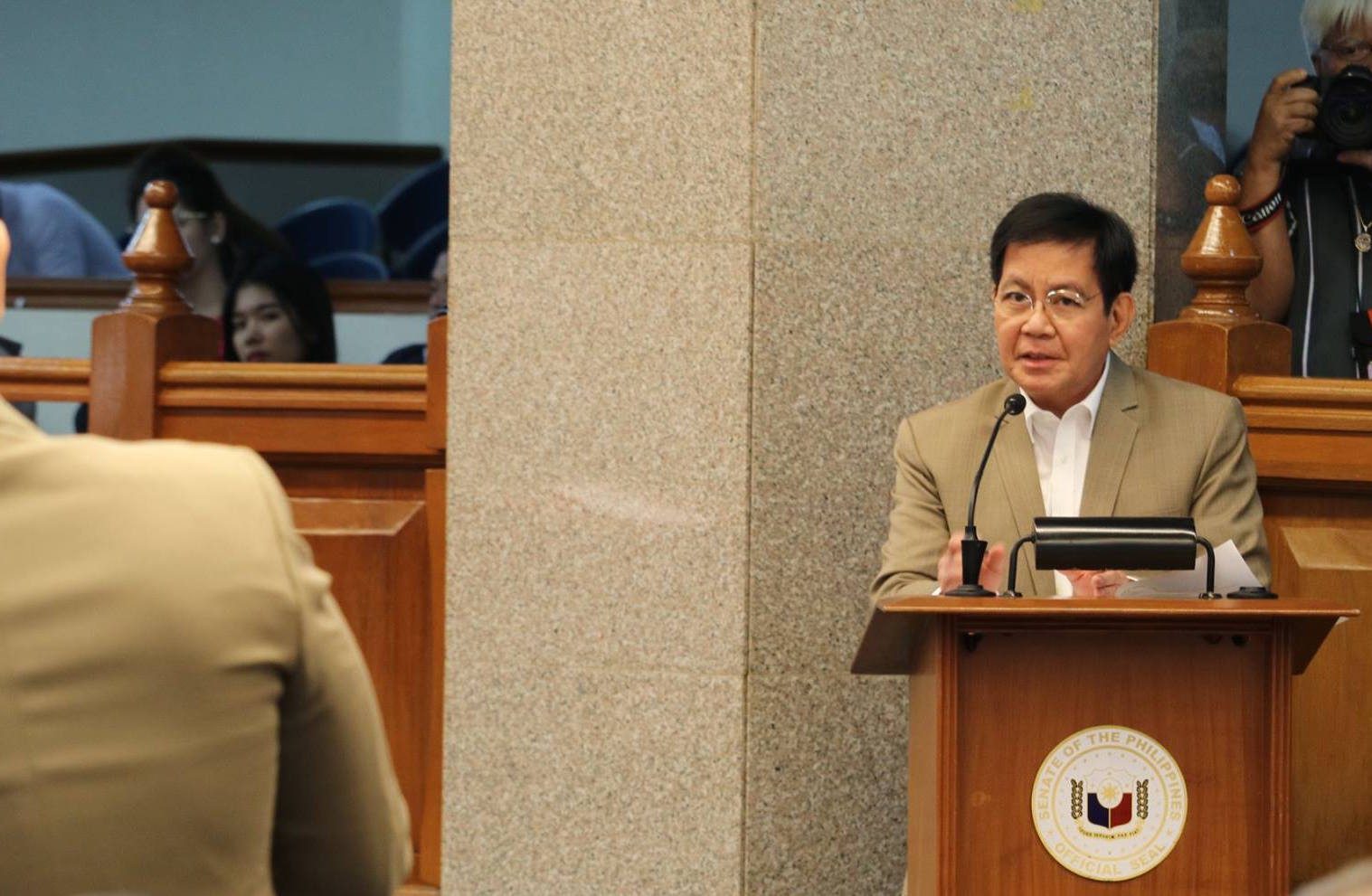SUMMARY
This is AI generated summarization, which may have errors. For context, always refer to the full article.


MANILA, Philippines – Senator Panfilo Lacson filed Senate Resolution 580 on Monday, January 15, calling for the Senate to take part in the bicameral constituent assembly to propose amendments to the 1987 Constitution.
“To direct the Senate of the Philippines to constitute itself into a Constituent Assembly to propose amendments to or revision of the Constitution and upon approval by ¾ vote of all its members, approve the said amendments to or revision of the Constitution,” Lacson said in his resolution, citing Article 17 of the 1987 Constitution.
While the senator acknowledged that the law is silent on the manner of voting, Lacson also called for the Senate and the House of Representatives’ separate voting on Charter Change (Cha-Cha). (READ: Joint voting on Cha-Cha? Senate’s problems, plans against it)
To push his point, Lacson cited constitutionalist Joaquin Bernas and retired justice Adolfo Azcuna, both members of the 1986 Constitutional Commission, on their statements on constituent assembly as a form of Cha-Cha.
Bernas, in an opinion piece in 2011, said: “Now there is growing acceptance of the proposition that Congress, when acting as a constituent assembly, need not be in joint session but may act the way it does in ordinary legislation (because the Constitution does not require a joint session).”
He added: “But if Congress decides to be in joint session (since the Constitution does not prohibit it), and if they do, they must vote separately (because it is the basic intent of having two houses that the wisdom of decisions be subjected to separate votes).”
In a separate opinion piece in 2012, Bernas also said that “the two houses of Congress are not required, as they were under the 1935 Constitution, to be in joint session.”
Some senators have opposed calls for a joint voting, as it would render the chamber practically irrelevant alongside the 300-member House.
Senator have also said they are expecting the issue to reach the Supreme Court, which is the final arbiter of the law. Senate Minority Leader Franklin Drilon earlier said the minority bloc is “open” to questioning the issue before the High Court. – Rappler.com
Add a comment
How does this make you feel?
There are no comments yet. Add your comment to start the conversation.